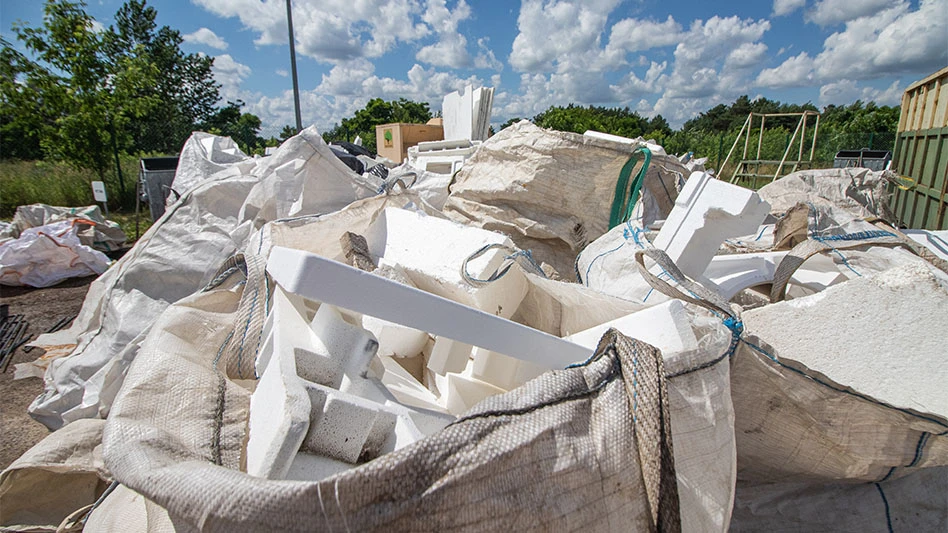
Sergey | stock.adobe.com
On Nov. 30, the European Commission (EC) proposed new rules on packaging that would apply to the whole of the European Union. The new rules aim to stop the growth in packaging waste in the EU, which the EC says will increase by 19 percent by 2030, while plastic packaging waste in particular will be a 46 percent increase.
The proposal on packaging and packaging waste will be considered by the European Parliament and the Council according to ordinary legislative procedure.
The prosed rules would ensure reusable packaging options are available, remove unnecessary packaging, limit overpackaging and provide clear labels to support correct recycling.
The EC says the changes would create new business opportunities, especially for smaller companies; decrease the need for virgin materials; boost Europe's recycling capacity; and make Europe less dependent on primary resources and external suppliers. Additionally, the new rules would put the packaging sector on track for climate neutrality by 2050, according to the EC.
The rules also are designed to bring clarity to consumers and the industry on biobased, compostable and biodegradable plastics, setting out the applications for which such plastics are truly environmentally beneficial and how they should be designed, disposed of and recycled.
The EC says the proposed revisions to the EU legislation on Packaging and Packaging Waste have three main objectives:
to prevent the generation of packaging waste by reducing it in quantity, restricting unnecessary packaging and promoting reusable and refillable packaging solutions;
to boost high-quality, or closed-loop, recycling by making all packaging on the EU market recyclable in an economically viable way by 2030; and
to reduce the need for primary natural resources and create a well-functioning market for secondary raw materials, increasing the use of recycled plastics in packaging through mandatory targets.
The EC says the primary target is to reduce packaging waste by 15 percent by 2040 per member state per capita compared with 2018. This would lead to an overall waste reduction in the EU of some 37 percent compared with a scenario without changing the legislation. This would be achieved by reuse and recycling.
Companies will have to offer a certain percentage of their products to consumers in reusable or refillable packaging, for example, take-away drinks and meals or e-commerce deliveries. Some standardization of packaging formats and clear labeling of reusable packaging also would be required.
To address clearly unnecessary packaging, the EC says certain forms of packaging will be banned, for example, single-use packaging for food and beverages when consumed inside restaurants and cafes, single-use packaging for fruits and vegetables, miniature shampoo bottles and other miniature packaging in hotels.
Additionally, measures aim to make packaging fully recyclable by 2030. This includes setting design criteria for packaging; creating mandatory deposit return systems for plastic bottles and aluminum cans; and making it clear which very limited types of packaging must be compostable so that consumers can throw these items into biowaste.
Mandatory rates of recycled content also would be specified in new plastic packaging. This will help turn recycled plastic into a valuable raw material, the EC says, as has been shown by the example of PET bottles in the context of the Single-Use Plastics Directive.
All packaging would carry a label showing what the packaging is made of and in which waste stream it should go. Waste collection containers would carry the same labels. The same symbols will be used everywhere in the EU, the EC says.
By 2030, the proposed measures would bring greenhouse gas emissions from packaging down to 43 million metric tons compared with 66 million metric tons if the legislation is not changed. Water use would be reduced by 1.1 million cubic meters. The costs of environmental damage for the economy and society would be reduced by 6.4 billion euros, or $67.3 billion, relative to the baseline of 2030.
The EC says biodegradable plastics must be approached with caution, noting that while they have their place, they need to be directed to specific applications where their environmental benefits and value for the circular economy are proven.
Industrially compostable plastics should only be used when they have environmental benefits, they do not negatively affect the quality of the compost and when there is a proper biowaste collection and treatment system in place, the EC says. Industrially compostable packaging will only be allowed for tea bags, filter coffee pods and pads, fruit and vegetable stickers, and very light plastic bags.
FEAD, the European Waste Management Association, says it has welcomed the proposal on the packaging and packaging waste regulation, saying it reaffirms that recycling is the core element of circularity.
Brussels-based FEAD says it supports the EC's ambition reflected in the packaging and packaging waste proposal and strongly believes that the sector must be stimulated using strong and binding measures to stimulate demand for recyclates to achieve a “real” circular economy. The proposed measures, such as mandatory recycled content, would create the needed shock on demand for recyclates and therefore trigger investments in separate collection, sorting and innovative recycling.
FEAD says it views the ambitious collection targets as crucial and calls for the deployment of all available instruments. Separate collection is a key step in strengthening environmentally sound waste management that is aimed at creating new resources. FEAD adds that it also supports progressive implementation of the targets, which it says would allow industry and member states to develop all the necessary infrastructure in the right time frame.
The organization says it views eco-design measures as being of key importance, saying it is the first necessary step at the beginning of the production process to achieve full recyclability while ensuring that functionality and sustainability can be combined.
Peter Kurth, FEAD president, says, “The commission’s proposed new regulation shows a strong willingness to close the loop in the packaging sector. It is a strong and welcomed signal that echoes the voice of the waste management, which called for ambitious measures and targets for recycling. Our pivotal role along the whole chain of products to waste in making the European economy more circular is being valued.”
Latest from Recycling Today
- Alpla calls 2024 year of recycling growth
- Altilium says agreement puts it on lithium recycling path
- NWRA, SWANA partner to address lithium-ion batteries
- Corinth, Texas, renews waste contract with CWD
- Fresh Perspective: Sarah Zwilsky
- Plastics Industry Association announces leadership changes
- QCC celebrates 50th anniversary
- Venture Metals acquires 2 nonferrous processors





